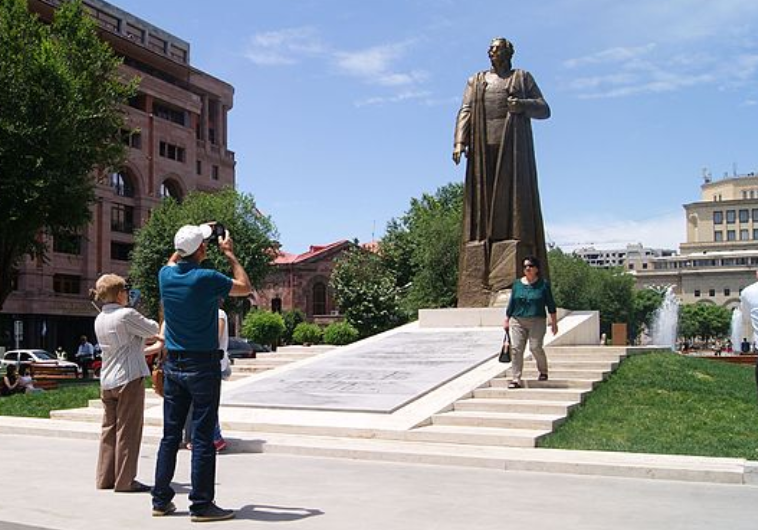Armenian monument to Nazi collaborator draws criticism
The statue is of Garegin Nzhdeh, an Armenian nationalist who sought independence first from the Ottoman Empire and then from Soviet domination.
 Garegin Nzhdeh monument, Yerevan, Armenia(photo credit: ARMINEAGHAYAN)Updated:
Garegin Nzhdeh monument, Yerevan, Armenia(photo credit: ARMINEAGHAYAN)Updated: